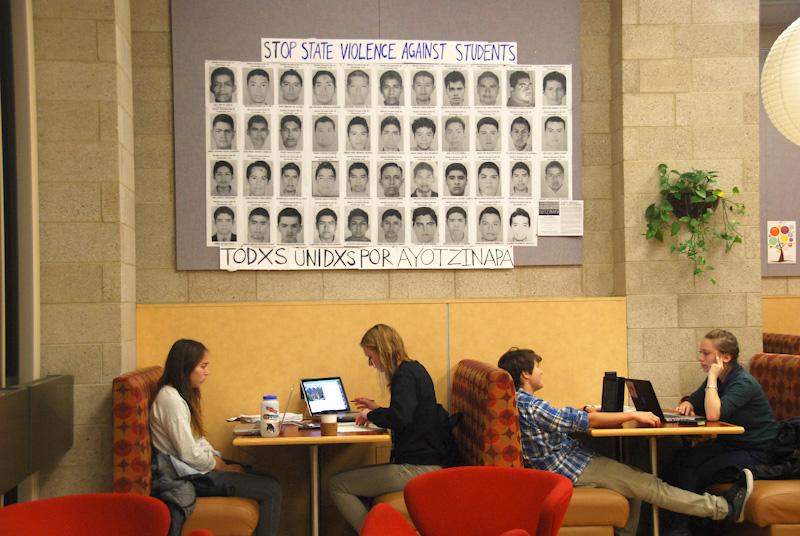Feature Photo: Todxs Unidxs por Ayotzinapa (All United for Ayotzinapa)
November 21, 2014
In accordance with an international day of action, Oberlin students posted dozens of posters throughout campus that display the faces of the 43 students from the Raul Isidro Burgos Rural Teachers’ College of Ayotzinapa in Iguala, Guererro, Mexico, who were kidnapped by the Mexican police late in September.
“As students at this educational institution, it is important to show support for those whose right to study and to return to their communities to share and enact what they have learned is being violently denied by the state,” the fliers that accompanied the posters said.
On Nov. 7, Mexican Attorney General Jesús Murillo Karam reported that numerous suspects admitted to murdering the students and incinerating their bodies, which led investigators to find several bags of human remains. Although many of
the disappeared students’ families have not recognized the evidence as proof of their children’s murder, many are holding the Mexican government — including President Enrique Peña Nieto and the attorney general himself — accountable as complicit in the disappearances.
According to the fliers, part of the purpose of the demonstration was to denounce how English-speaking media is representing the events. While many media outlets have stated that the students were arrested for protesting against the mayor’s wife’s ceremony, other outlets have maintained that the students never intended to meddle in governmental affairs.
“[The mayor’s] statements to the press have been cynical and obviously laden with lies,” journalist John Gibler told Democracy Now!. “There was no plan to go to Iguala to interrupt the mayor’s wife’s ceremony. Most of the students who were attacked that night were freshmen. They had been at Ayotzinapa for only a matter of weeks. In fact, that Friday, for many, it was their first day of classes. So, these people, who come from some of the most economically battered municipalities in Mexico, and perhaps in the Western Hemisphere, had no idea who the mayor of Iguala was.”
The fliers also commented on U.S. involvement in a larger history of state repression and violence in Mexico.
“The United States has spent approximately $3 billion to fund the War on Drugs in Mexico,” the flyer said. “As residents of the United States, it is also crucial that we recognize this country’s role in perpetuating violence and repression in Mexico.”



















